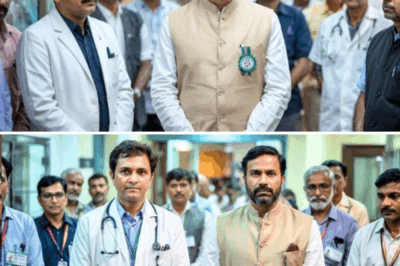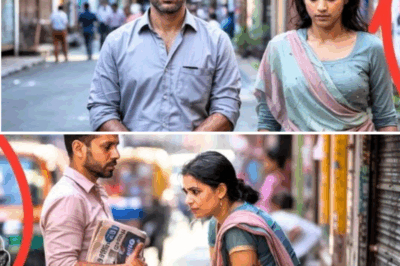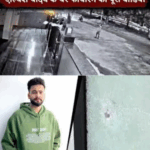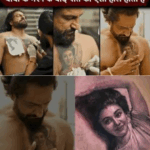Operation Maa: How a Mother’s Voice Brought Sons Back from the Brink of Terrorism

Byline: An inspiring account of a unique peace initiative by the Indian Army that sought to reclaim lost youth through the emotional power of motherhood.
In conflict zones, military responses often take precedence—guns answer bullets, and operations are measured in neutralizations. But in 2019, amidst peak tensions in Kashmir, the Indian Army launched a bold, humane counter to terrorism. Not with force—but with feeling. It was called Operation Maa.
The brainchild of Lieutenant General K.J.S. Dhillon, then Corps Commander in Kashmir, the initiative appealed not to the militant or the insurgent—but to the mother.
The Genesis of a Revolutionary Idea
In February 2019, Kashmir was boiling. Within days of Gen. Dhillon’s appointment, Pulwama happened. A few weeks later came the Balakot airstrike. Then, in August, the abrogation of Article 370. It was a year of high emotion, political shifts, and violent unrest.
But General Dhillon, a veteran of multiple tenures in Kashmir dating back to 1988, had seen one thread remain constant across decades of conflict—the power of a Kashmiri mother’s love.
“In almost every encounter, we’d recover letters in the pockets of dead militants—letters from or to their mothers,” he recalled. “Most began with Ammi jaan ko salaam, or Ammi jaan ko duaon mein yaad rakhna… The mother was always central.”
From this deep-rooted cultural observation came a radical idea: Appeal to the mothers. Ask them to call their sons back.
A Mother’s Call, Not a Military Threat
In the weeks following his appointment, General Dhillon publicly addressed the mothers of Kashmir: “Tell your sons to return. No case will be filed. Their identities will be protected. We will help them build a life again.”
This wasn’t rhetoric. It was backed by logistics and intelligence.
Data collected over two years showed that:
64% of new recruits into terrorism were killed within the first year.
83% of those who picked up guns had previously engaged in stone-pelting, often for as little as ₹500.
The Army began using this data in counseling sessions with families, emphasizing that what began with a stone often ended with a coffin.
Changing Tactics on the Battlefield
During active encounters, the Army would pause operations if it was discovered that a local youth was trapped inside. Parents, teachers, village heads—even local religious leaders—were brought to the site to appeal through megaphones or mobile phones.
“In many cases, we even recharged the militants’ phones mid-call,” said Dhillon. “Just so their mother could convince them to come out alive.”
One by one, the boys began returning. In the first year alone, over 50 youths surrendered. As of 2025, the number has crossed 117—each one a life reclaimed.
Operation Maa on Film
Now, the story of this extraordinary mission is the subject of a documentary—“Operation Maa”—featuring real characters, real soldiers, and real mothers. Everyone in the film plays themselves: no actors, no scripted drama. Just truth.
The documentary explores individual journeys—young boys with bright academic or athletic futures, misled into militancy, now returned to their families. Stories of boys now driving sumos, working in restaurants, guiding tourists on shikaras—once again sons of Kashmir, not soldiers of hate.
A Changed Valley
“Today, 80% of terrorists operating in the Valley are foreign—mostly Pakistani,” says Gen. Dhillon. “In districts like Pulwama, once hotbeds of militancy, no local youth has picked up arms in over two years.”
Economic revival is visible too. ATM withdrawals, hotel occupancy, airline bookings—every indicator points to a valley choosing peace. A society once silenced by gunfire is now speaking up—against terror, for harmony.
What Operation Maa Truly Represents
“Operation Maa wasn’t just a military plan,” says Dhillon. “It was about restoring faith—between the people and the forces, between the youth and their futures, and most of all, between a mother and her son.”
His most touching memory? A mother who kissed his hand and silently looked into his eyes, conveying more gratitude than any words ever could. “That moment,” he says, “sealed my belief that a mother’s love is mightier than any weapon.”
Final Message: From a Soldier to the Sons of Kashmir
“Kashmiris are not born terrorists,” Dhillon insists. “They are artists, poets, craftsmen, and hosts. A few misguide them, but the spirit of Kashmir is one of warmth and wisdom.”
Operation Maa proved that even in the harshest conflict, hope can return—not from policy or power—but from something deeply human. A mother’s voice.
And in the end, that voice was heard.
News
Shefali Jariwala Husband Opens NGO in the name of his wife Shefali Zariwala Rise Foundation
A Legacy of Empowerment: Parag Tyagi Transforms Grief into Action with the Shefali Jariwala Rise Foundation Some tragedies change a…
Midnight Drama, Headlights & Viral Videos: INDIA Bloc’s ‘Vote Adhikar Yatra’ Kicks Off in Bihar Amid Hurdles”
Midnight Drama, Headlights & Viral Videos: INDIA Bloc’s ‘Vote Adhikar Yatra’ Kicks Off in Bihar Amid Hurdles” The much-anticipated INDIA…
Communal Tensions Rise in Rewa: Vandalism and Flag Incident at Century-old Mazaar Sparks Outrage”
Communal Tensions Rise in Rewa: Vandalism and Flag Incident at Century-old Mazaar Sparks Outrage” Incident Overview A disturbing incident in…
DSP’s Viral Reels, a B//urning Body, and Demands for CBI Probe: Unanswered Questions in the Sur Hasda Encounter
DSP’s Viral Reels, a B//urning Body, and Demands for CBI Probe: Unanswered Questions in the Sur Hasda Encounter A recent…
डॉक्टर ने गरीब का किया मुफ्त इलाज, 5 साल बाद जब मरीज मंत्री बनकर लौटा तो अस्पताल में सब कुछ बदल दिया
डॉक्टर ने गरीब का किया मुफ्त इलाज, 5 साल बाद जब मरीज मंत्री बनकर लौटा तो अस्पताल में सब कुछ…
KBC में जीते 1 करोड़, पैसा मिलते ही पत्नी भाग गयी, 1 साल बाद जब वो मिली तो उसकी हालत देखकर होश उड़ गए!
KBC में जीते 1 करोड़, पैसा मिलते ही पत्नी भाग गयी, 1 साल बाद जब वो मिली तो उसकी हालत…
End of content
No more pages to load









